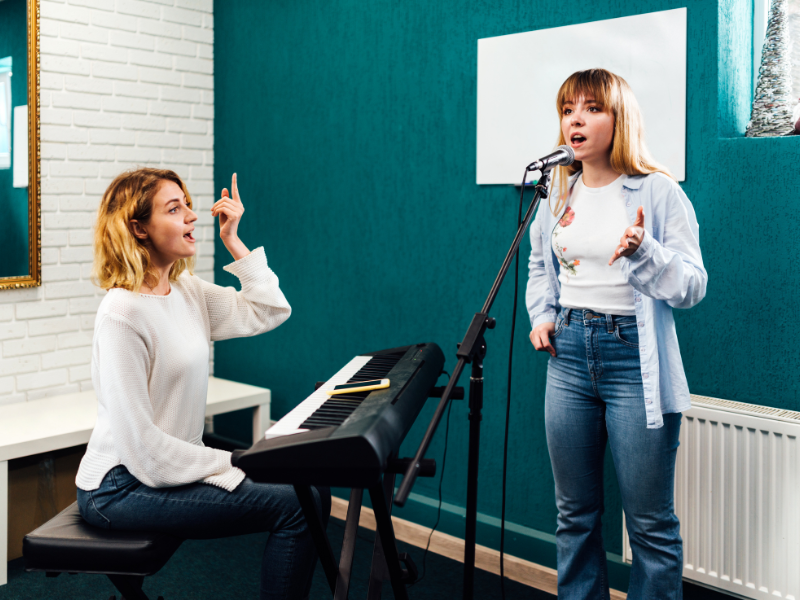If you have perfect pitch, your brain looks different!

But, we don’t yet know how it (your brain) functions differently to result in the ability to identify a pitch individually. In the research, perfect pitch, which is a commonly used term, is referred to as absolute or AP pitch. Researchers have known for sometime that the brain structures (parts) of a person with absolute pitch has specific areas that are identified as unique or different. However, they don’t know how those structural differences might function or connect in equally unique or specific ways.
Here is a good definition of perfect/absolute pitch from the abstract:
“Absolute pitch (AP), the ability of some musicians to precisely identify and name musical tones in isolation, is associated with a number of gross morphological changes in the brain, but the fundamental neural mechanisms underlying this ability have not been clear.”
Now here is the significance of this particular study. Basically, there is a area of the auditory processing system, the one that processes broad frequency tuning, that could be the start of our understanding the neural mechanisms underpinning perfect/absolute pitch.
“Absolute pitch (AP), the ability of some musicians to precisely identify and name musical tones in isolation, is associated with a number of gross morphological changes in the brain, but the fundamental neural mechanisms have not been clear. Our study shows that AP musicians have significantly larger volume in early auditory cortex than non-AP musicians and non-musician controls and that this increased volume is primarily devoted to broad-frequency tuning. We conclude that AP musicians are likely able to exploit increased ensemble representations to encode and identify frequency.”
Free Easter campaign download with posters and social tiles to help students understand the value of music learning.
What if you could advocate for music education without adding more work to your already packed schedule?
Engaging in musical activities offers profound benefits for our brains, enhancing various cognitive functions and emotional well-being.
While there can only be one winner of the BBB Music Teacher Award, we also recognize the outstanding efforts of our 2025 Runner-Up, Ruby Mensforth—a teacher whose dedication to fostering a love of music has left a lasting impact on her students.
Playing an instrument or singing in a choir isn’t just fun—it’s great for brain health too. A recent study found that people with musical experience have stronger memory and thinking skills than those without.
For many music teachers, March means concert season, assessment planning, and advocating for the importance of music education as budgets and schedules for next year take shape.
We know that speaking up for music in schools can feel overwhelming—but you don’t have to do it alone.
If you've ever conducted or played in an ensemble, you’ve likely felt it—that moment when everything clicks, the music soars, and your group performs at a level beyond anything you thought possible.
The World Economic Forum's Future of Jobs Report 2025 highlights the critical skills that will define the workforce of tomorrow.
A recent study in Ear and Hearing investigated how aging and hearing loss influence music perception, focusing on melody and timbre discrimination.
A new study in the Journal of Neuroscience reveals that our brains start processing rhythm as early as 27 weeks into pregnancy.
The 2025 Celebrate to Advocate Calendar is your go-to guide for making advocacy effortless this year!
A recent study from Waseda University has uncovered that when individuals listen to music, their heart rates synchronize, reflecting a unified physiological response.
A groundbreaking study in Nature Human Behaviour has revealed a fascinating genetic connection between musical rhythm skills and language-related traits, including dyslexia.
Recent research from the Georgia Institute of Technology has unveiled compelling insights into how music affects learning, memory, and emotions.
A recent study from Aarhus University reveals that while older adults can remember familiar music as well as younger individuals, their brains engage differently during the process.
Take our free, 60 second quiz and maximize your advocacy impact by discovering your advocacy style and knowledge gaps.
Thank you for a wonderful 2024! Here’s a little gift from BBBB to you.
Music has always been a go-to for lifting our spirits, but did you know classical music might take it a step further by actually helping treat depression?



















